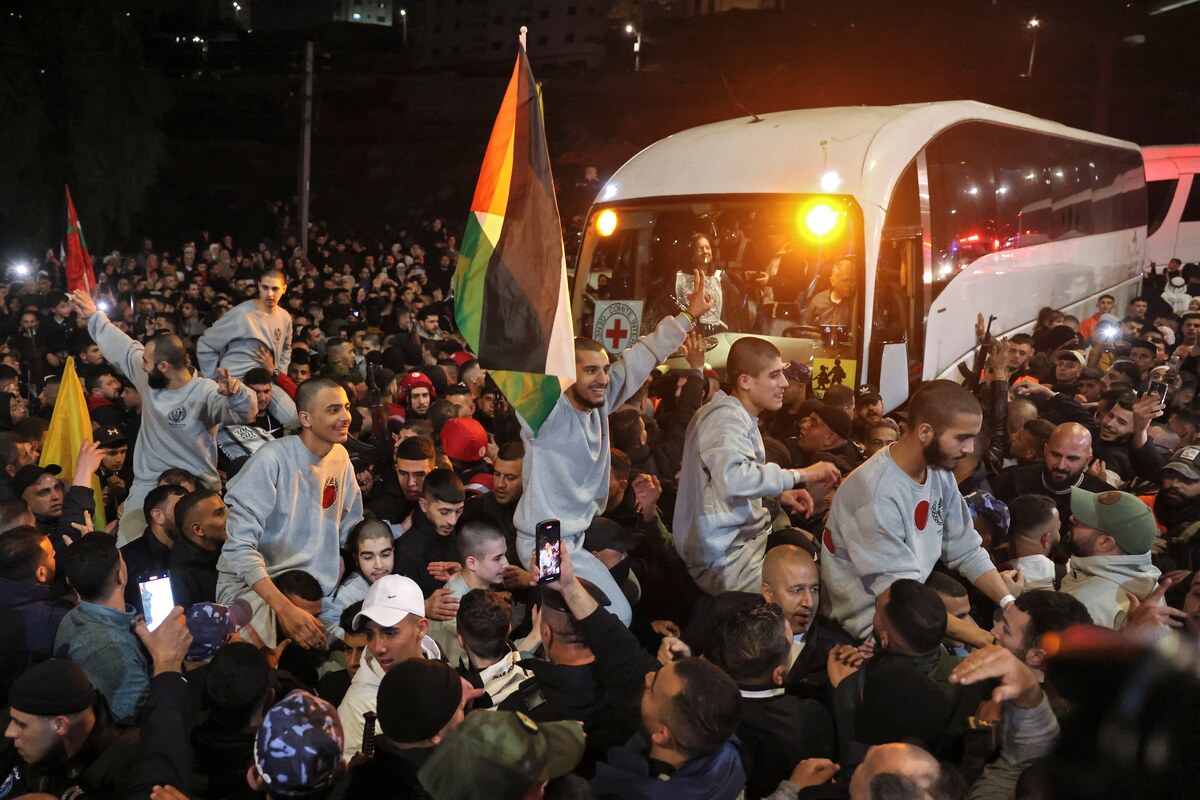BEIRUT: Syrian insurgents swept into the central city of Hama on Thursday and government forces withdrew, dealing another major blow to Syrian President Bashar Assad days after insurgents captured much of Aleppo, the country’s largest city.
The stunning weeklong offensive appeared likely to continue, with insurgents setting their sights on Homs, the country’s third-largest city. Homs, which is about 40 kilometers (25 miles) south of Hama, is the gate to the capital, Damascus, Assad’s seat of power and the coastal region that is a base of support for him.
The offensive is being led by the jihadi group HTS and an umbrella group of Turkish-backed Syrian militias called the Syrian National Army. Their sudden capture of Aleppo, an ancient business hub in the north, was a stunning prize for Assad’s opponents and reignited the Syrian civil war that had been largely a stalemate for the past few years.
Hama is one of the few cities that has remained mostly under government control in the conflict, which broke out in March 2011 following a popular uprising.
By sunset, dozens of jubilant fighters were seen shooting in the air in celebration in live footage from Hama’s Assi Square. The square was the scene of massive anti-government protests in the early days of the uprising in 2011, before security forces stormed it and got the city under control.
The Syrian army on Thursday said it redeployed from Hama and took positions outside the city to protect civilians.
Abu Mohammed Al-Golani, the de facto leader of the Syrian insurgency, announced in a video message that fighters had reached Hama in a “conquering that is not vengeful, but one of mercy and compassion.”
Al-Golani is the leader of the most powerful insurgent group in Syria, Hayat Tahrir Al-Sham, which previously served as Al-Qaeda’s branch in Syria and is considered a terrorist group by the United Nations as well as countries including the US The group that was known as the Nusra Front in the early years of Syria’s conflict changed its name and said in recent years that it cut ties with Al-Qaeda.
Al-Golani publicly toured Aleppo on Wednesday and spoke about Hama on Thursday from an undisclosed location in what appeared to be a video filmed with a mobile phone.
“This is a massive win (for the insurgents) and a strategic blow for the (Syrian) regime,” Dareen Khalifa, a senior adviser with the International Crisis Group and an expert on Syrian groups. She said the question is whether the opposition will be able to reach Homs and take over the area, which she said would be a game-changer.
“I think then we are going to have to pause and consider whether or not this (Assad government) can actually survive this war,” she added.
Turkish President Recep Tayyip Erdogan, whose country supports the opposition fighters, reiterated during a telephone call with the UN Secretary General Antonio Guterres that the Syrian government should urgently engage with its people “for a comprehensive political solution.”
Guterres said in a statement later that after 14 years of war in Syria, “it is high time” for all parties to engage seriously in talks to resolve the conflict in line with Security Council Resolution 2254.”
That resolution, which was adopted unanimously in December 2015, endorsed a road map to peace in Syria. The measure called for a Syrian-led political process, starting with the establishment of a transitional governing body, followed by the drafting of a new constitution and ending with UN-supervised elections.
The Britain-based Syrian Observatory for Human Rights — an opposition war monitor — said after fierce battles inside Hama, opposition gunmen now control the police headquarters in the city as well as the sprawling air base and the central prison from where hundreds of detainees were set free.
“The process leading to the fall of the regime has started,” the Observatory’s chief, Rami Abdurrahman, told The Associated Press.
Aleppo’s takeover marked the first opposition attack on the city since 2016, when a brutal Russian air campaign retook it for Assad after militant forces had initially seized it. Military intervention by Russia, Iran and Iranian-allied Hezbollah, and other militant groups has allowed Assad to remain in power.
The latest flare-up in Syria’s long civil war comes as Assad’s main regional and international backers, Russia and Iran, are preoccupied with their own wars in Gaza, Lebanon and Ukraine. This time, there appeared to be little to no help from his allies.
Tens of thousands of people have been displaced by the renewed fighting, which began with the surprise opposition offensive Nov. 27.
Hama is a major intersection in Syria that links that country’s center with the north as well as the east and west. It is about 200 kilometers (125 miles) north of the capital. Hama province also borders the coastal province of Latakia, a main base of popular support for Assad.
The city is known for the 1982 massacre of Hama, one of the most notorious in the modern Middle East, when security forces under Assad’s late father, Hafez Assad, killed thousands to crush a Muslim Brotherhood uprising.
Syrian insurgents capture central city of Hama
https://arab.news/b22vw
Syrian insurgents capture central city of Hama

- Weeklong offensive appeared likely to continue, with insurgents setting sights on Homs
- Hama one of few cities that remained mostly under government control in conflict that broke out 2011



























